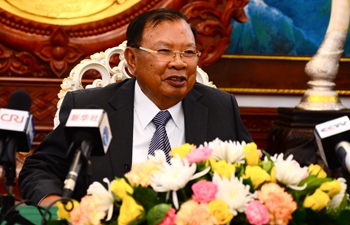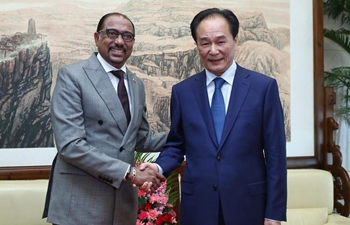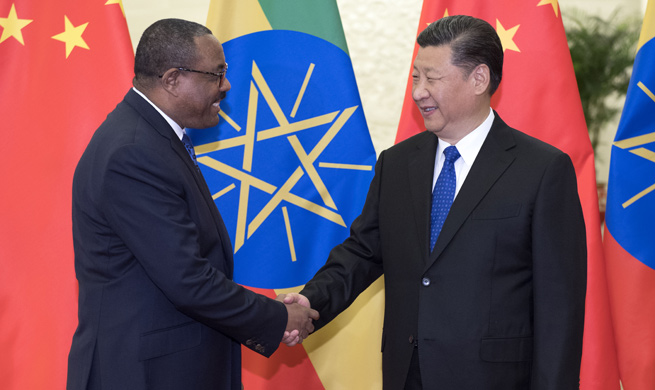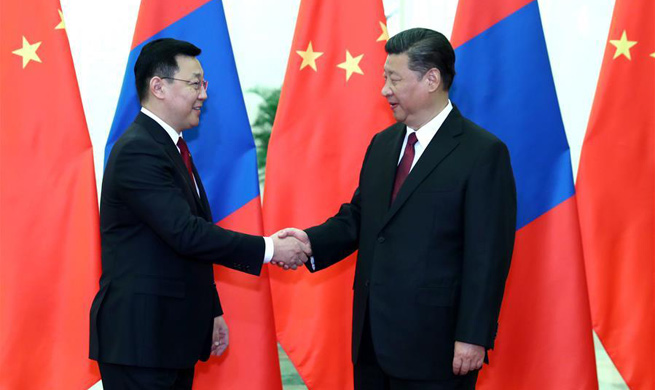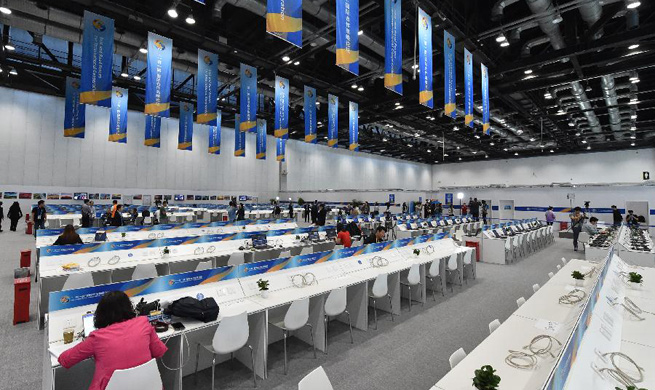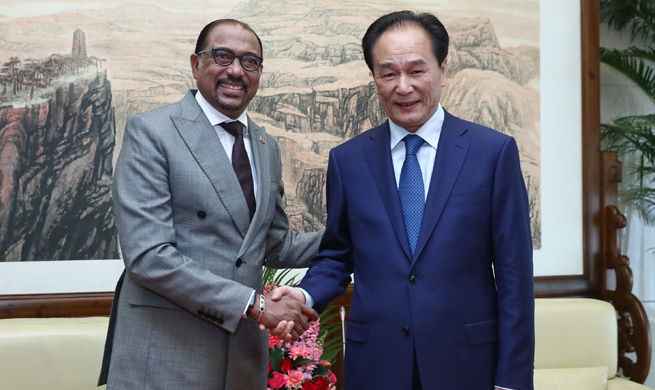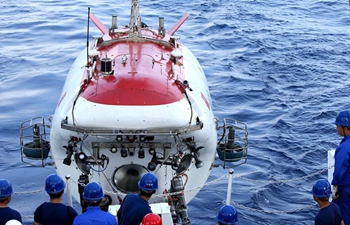JAKARTA, May 12 (Xinhua) -- The synergy between the China-proposed Belt and Road Initiative and Indonesia's Global Maritime Fulcrum strategy will undoubtedly bring more benefits to Indonesia, an Indonesian official said on Friday.
Thomas Trikasih Lembong, head of Indonesia's Investment Coordination Board (BKPM), made the remarks here in an exclusive interview with Xinhua.
Proposed by China in 2013, the Belt and Road Initiative refers to the Silk Road Economic Belt and the 21st Century Maritime Silk Road, aiming at building a trade and infrastructure network connecting Asia with Europe and Africa along the ancient trade routes of Silk Road.
As the Belt and Road routes "pass through Indonesia that has 45 percent of population and significant economic scale in Southeast Asia region," they are reasonably effective, Thomas said, adding that moreover, Indonesia is the world's largest archipelago country.
Indonesia's Global Maritime Fulcrum strategy is aimed at making more effective use of the country's vast sea to further boost national economy by improving connectivity through port infrastructure, sea transport and assuring sustainable production of maritime-related resources.
Indonesia has developed concepts involving integrated infrastructure and connectivity projects which would be focused on one or two regions, the BKPM head said.
Multi-dimensional infrastructure linking functions of seaports, airports, toll roads, railway tracks, pipelines, power transmission, tourism is the concept chosen by Indonesia in the designated regions, he added.
Lembong said Chinese investments in Indonesia have been increasing enormously over the past three to four years, with its standing up from the 12th rank of Indonesia's Foreign Direct Investments (FDI) in 2013 to the third largest at present.
"I see this is a good momentum. Thanks to President (Joko) Widodo's efforts to preserve good economic relations between China and Indonesia," Lembong said.
Another sign of growth has been witnessed in the rapid growth of Chinese visitor arrivals in the country in the last few years. They are now the main foreign visitors in Indonesia with Bali and Manado being their favorite destinations.
Thomas noted that the Indonesian government has planned to develop Manado as a hub for tourism and services to support Chinese investments which operate in Indonesia's eastern region around the capital of North Sulawesi province.







